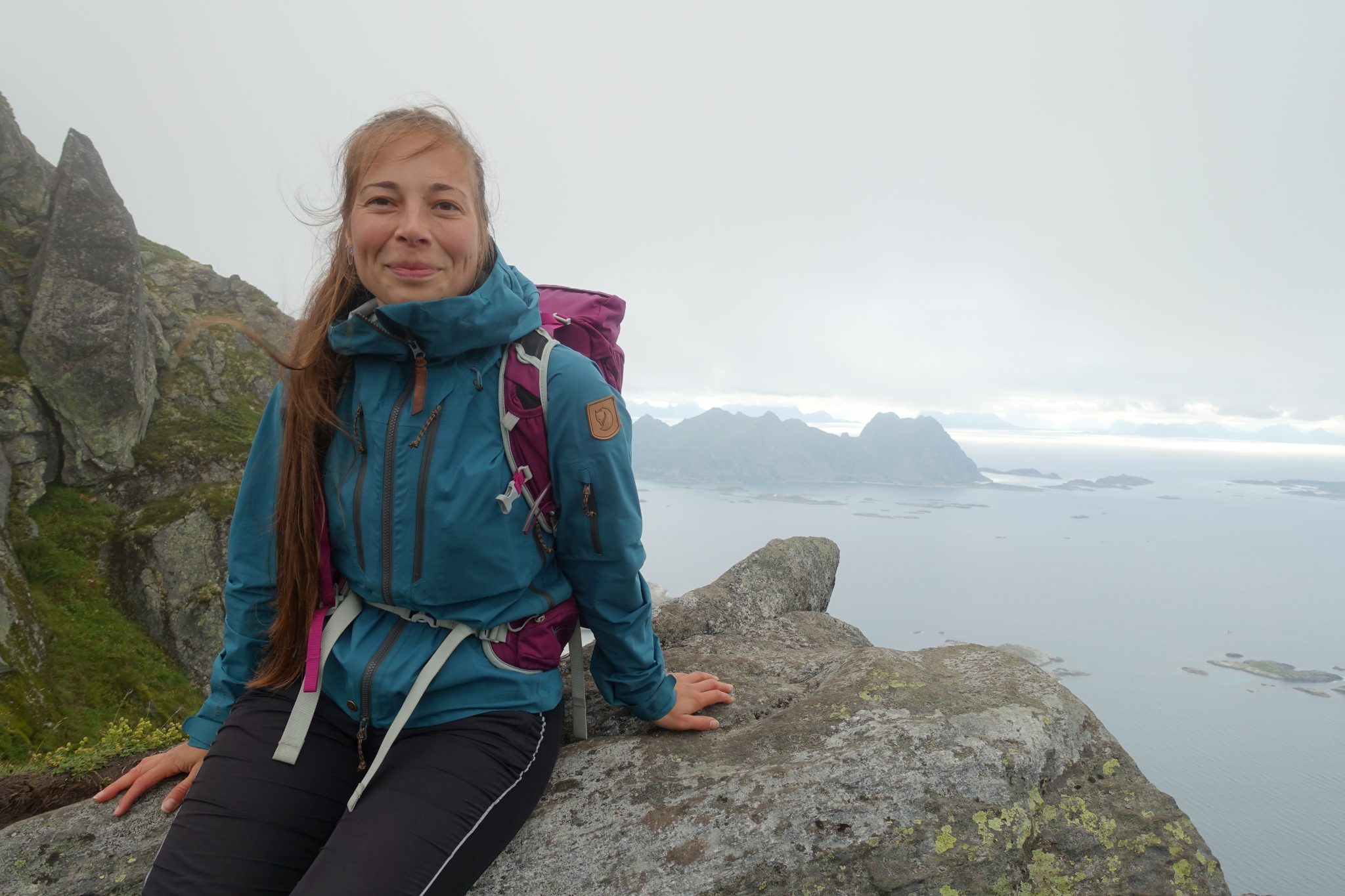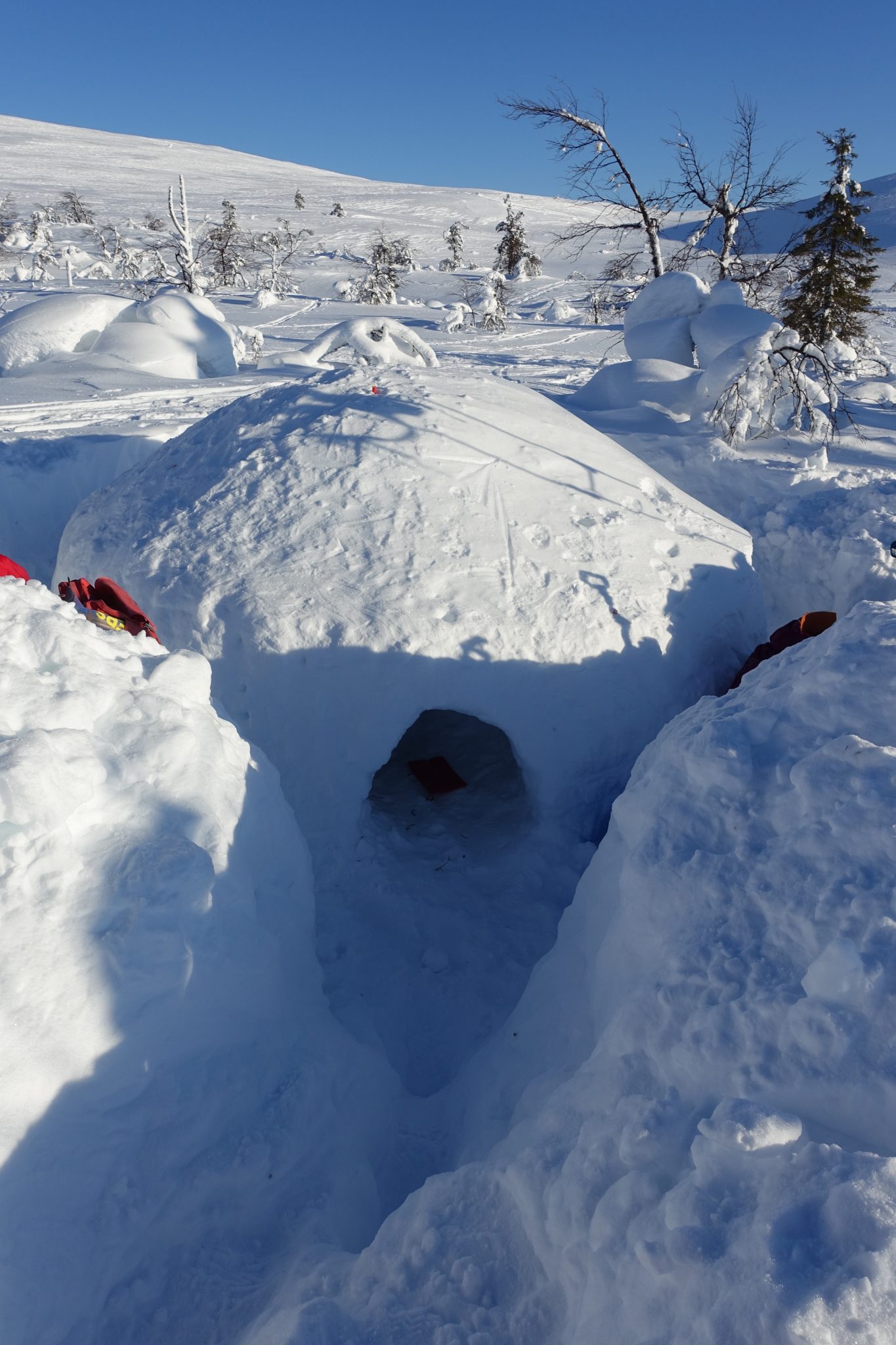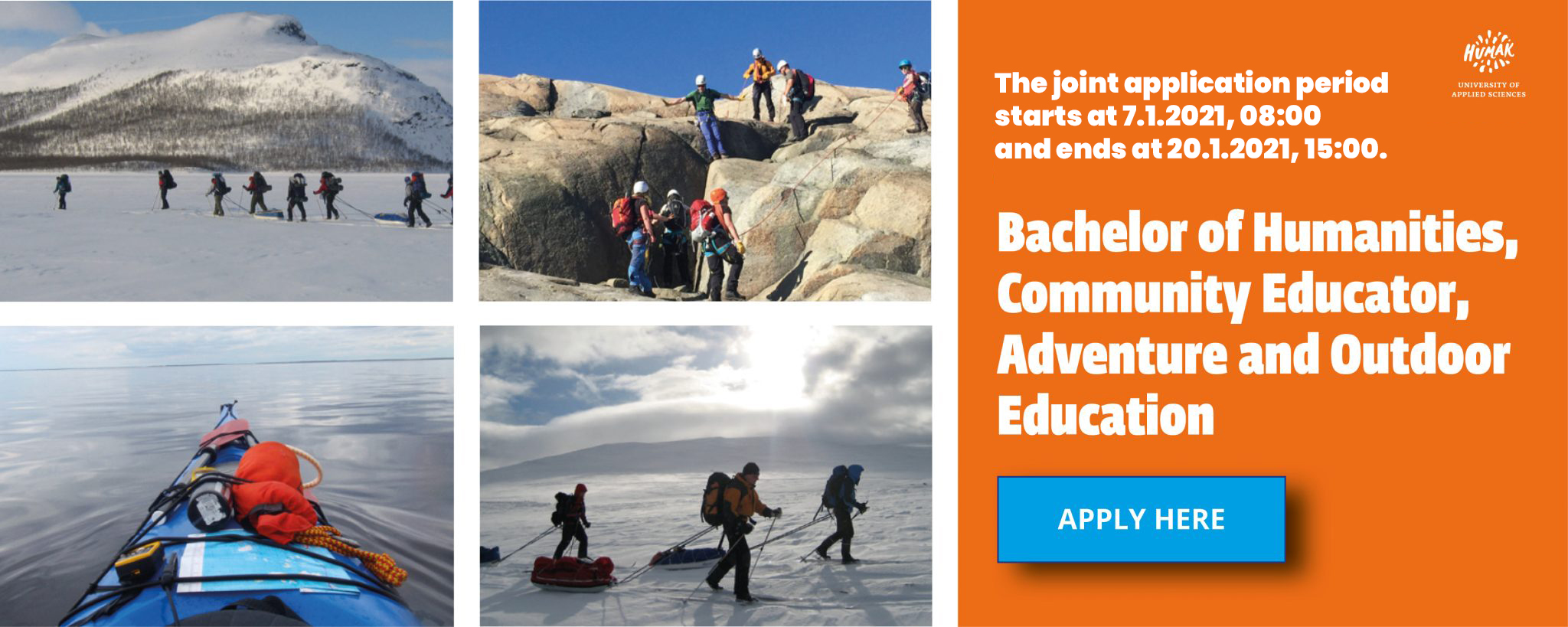Mari Kulovesi is the First Student to Graduate From the Adventure and Outdoor Education Programme
Mari Kulovesi is the first graduate student of the Adventure and Outdoor Education programme, which began in Humak in 2018. Bachelor’s Degree in Adventure and Outdoor Education (Community Educator, Bachelor of Humanities) is an adventure education-focused, English-language community educator degree.
Mari began her studies at Humak with community education studies. She moved on to adventure education studies after her first year, when Adventure and Outdoor Education became a separate programme from community education studies.
Adventure and Outdoor Education is a three-year programme in Community Education (210 ECTS), in which the community educator’s group work and group guidance skills are applied and utilized in authentic environments, in activities such as kayaking and wilderness and mountain hikes around the Nordic countries.

Theory supports practise in Adventure and Outdoor Education
At the beginning of her studies, the basic skills of an adventure educator were practiced with an autumn trek to Pallas-Yllästunturi National Park, while the second-year studies included winter trekking in similar landscapes. The hikes familiarized students with camping equipment and practices, while also teaching group leadership and safety skills. During the winter trip, Mari’s class spent a night in a quinzhee (hollowed out pile of snow) built by the students themselves.
“I didn’t even realize how big of a job it was to build one. After it was built I got claustrophobia trying to sleep in the quinzhee, so I ended up building myself a tarp covered trench in snow where I got to spend my night!” Mari recalls.
Adventure and Outdoor Education training is organized on the Nurmijärvi campus, near Helsinki. The campus area has extensive recreational opportunities; students have access to a basketball court, an indoor swimming pool and a gym, among other things. You can also live on the dormitories on campus.
“The campus is on the shore of a lovely lake in the woods. There are many recreational opportunities in the area. We’ve also practiced the basics of climbing in the surrounding areas. The campus in Nurmijärvi is definitely the best place to study adventure education! ” Mari exclaims.

Adventure education is self-development
“The studies have deepened my previous skills, and I even learned brand new skills like climbing. I completed the top rope and lead rope cards that certifies a person to work in climbing backup roles. I also learned various leadership skills. In addition to practical studies, students learned how their own values are reflected in their work and how they can be taken into account. It is important to identify your own strengths and weaknesses, and shape your own guidance accordingly, ”Mari explains.
Mari completed her Adventure and Outdoor Education spring internship period in the Y-Foundation’s Meriheimo project, where she developed remote adventure programmes. Because covid restrictions halted the usual sailing training of the Meriheimo project, Mari got to come up with ideas for adventurous remote options.
“I planned a variety of tasks such as photography challenges and treasure hunts. We gathered online via Discord for assignments. The challenge could be, for example, photo orienteering or nature bingo. Although covid limited the opportunities to gather, you can continue adventuring with a little improvisation, ”says Mari.
Responsibility is shared by everyone
Mari’s class consisted of about twenty students.
“There probably is no typical adventure education student. We had classmates of all ages from a wide variety of backgrounds,” Mari says.
During their studies students gradually gain more responsibility and opportunities for influence. More experienced students are trusted to plan and lead study trips, as the role of teachers change from leaders to a consultants as the studies progress. In Mari’s class, students planned an excursion to Lofoten, Norway, where they learned technical skills such as alpine climbing.

The trip to Norway included planning the trip and taking into account the implementation of safety requirements. The students were divided into pairs who were tasked with leading the group one day at a time. During their studies, students also organized optional hiking trips and canoeing trips to the Ivalojoki River.
“It’s great that students are given responsibility in their studies. Our practical skills develop during the study trips. When necessary, students were divided into level groups, so more experienced students can challenge their skills in more demanding exercises,” Mari sums up.
In the future, Mari plans to work in the field of adventure education, for example as an instructor or in the tourism industry.
“I highly recommend studying adventure education! It is suitable for anyone who wants to do practical community education work. You still have to be able to work towards your own development. The whole point is to develop yourself, so that you can share skills and help others develop, too,” says Mari.
The joint application for Adventure and Outdoor Education will begin in January. Click on the banner below to view training information on Studyinfo’s website.
2020-12-17 15:35:22

